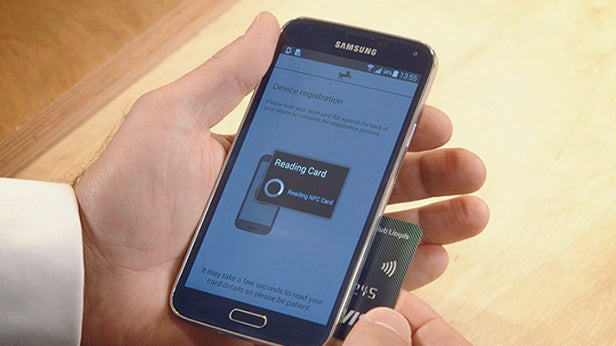Lloyds Bank wants you to validate mobile payments with NFC

Lloyds Bank is trialling a new way of authenticating mobile banking registration using Near Field Communication (NFC).
That’s the same type of technology that lets you pay for goods using contactless cards, and it’s how London’s Oyster system works.
Lloyd’s ‘tap to bank’ scheme is largely similar;
Usually, when someone wants to complete the mobile banking registration process, they need to receive a phone call from an automated system to authenticate the user.
Soon, however, customers will be able to tap their cards against an NFC-friendly Android smartphone, and immediately authenticate themselves.
This means the registration process is much simpler and quicker than before, and can eventually be rolled out to other tasks, like authenticating new payments.
“With the widespread take up of contactless cards and most new smartphones now having NFC technology, this tap to bank trial is developing enhancements to banking processes that many people could benefit from,” explains Marc Lien, Lloyd’s Director of Innovation and Digital Development.
He continues: “This is one of a raft of new technologies that we’re experimenting with to help our customers.”
Related: Best Android Smartphones 2015
Unfortunately, the ‘tap to bank’ is still only being trialled, with 125 willing participants currently testing the new system.
However, if the trial is successful, the scheme will eventually roll out to all Lloyds Bank customers nationwide.
Of course, you’ll need an NFC-friendly handset to get involved, so take a look at our 2015 smartphone group test video and see if any of these take your fancy:


